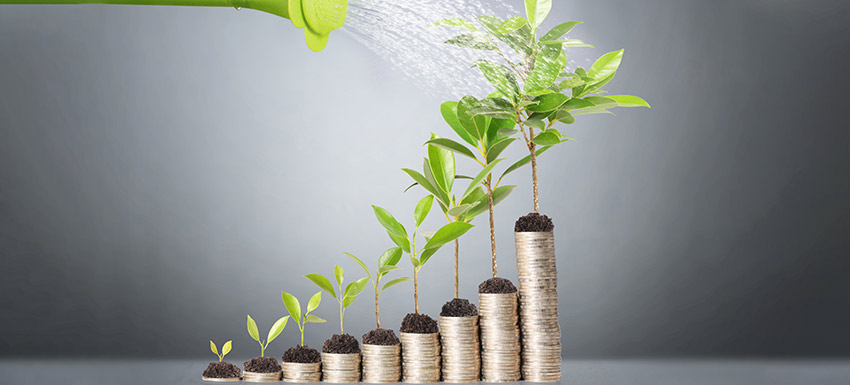THE
ORANGE
HUB
How the FDs of the Indian Middle-Class Help Boost Our Economy

Fixed Deposits have always been a preferred source of investment among the risk-conscious middle class in India. This segment of the population treads the balanced line between two polar ends of the spectrum - the extremely risk-averse and the excessively aggressive investors. As such, Fixed Deposit Accounts present themselves as a great instrument to park surplus funds or savings. Why? Firstly, they come with safety and security tied to the returns as well as the principal amount. For someone who prefers security over thrill, they are an ideal investment destination. Of course, you may not have the promise of immediate liquidity or the possibility of higher returns in a bullish market, but Fixed Deposits fulfil the financial motive of earning interest on the idle sums of money.
Due to this immunity from the ups and downs of the market, Fixed Deposits have become a favourite of the middle-income Indians. People who earn sufficient to get by and save a little, but who are wary of risking their financial stability too much form much of the consumer base.
A look at the numbers
At the beginning of 2019, the Reserve Bank of India (RBI) released the latest statistics on the deposit base of banks. Fixed Deposits or term deposits have consistently maintained a lion’s share of deposits with banks. In 2008-09, the share of Fixed Deposits stood at 63.5%. Even though the share has now fallen to 57.7% in 2017-18 as per the latest data, they are still the largest chunk of the deposits made with banks. This is a testimony to the preference that Indians give to Fixed Deposits as instruments of investment.
Financial inclusion
If there are no options that guarantee a certain return, most of us would not invest at all. If we have savings remaining at the end of the month, over and above our emergency funds, we would keep the surplus funds untouched. But Fixed Deposit Accounts provide a channel to invest in a way that ensures:
- We are guaranteed predictable or predetermined returns along with the safety of the principal amount
- We are enabled to park our savings without concerns about the magnitude of return or apprehensions about market volatility.
Further, when banks offer Fixed Deposits, they give you the option of choosing whether to receive the interest at the time of maturity or periodically. In the former scenario, interest will be compounded quarterly in a cumulative FD. In the latter situation, the interest will be paid out regularly to you, so that you can direct it towards meeting your daily expenses. In this sense, FDs are a great tool to mobilise the idle funds or savings within the economy. Mobilisation is the keyword here. Investors who are extremely risk-conscious or even conservative will be willing to convert funds into FDs and thereby inject them in the banking cycle, thereby helping to further the goal of financial inclusion.
Disposable incomes driving the force
When disposable income rises, we are more likely to have surplus funds. The next obvious step is to look for options to park these surplus funds. One ideally looks for the dual goals of safety and returns in any investment avenue. Fixed Deposits easily provide these features. Many people become investors for the first instance through their investment in a Fixed Deposit. They do not want to lose their hard-earned and hard-saved money in a gamble in the markets, so Fixed Deposit Accounts seem better.
In fact, what also helps in making Fixed Deposits lucrative are the taxability repercussions. This year, for instance, the Government is bringing a softer tax bracket. The Budget announced that as an individual taxpayer who has an annual income less than Rs 5 lakh, no tax has to be paid. This will again imply that you’d have a higher disposable income in hand, that can further provide an impetus to investments. As already discussed, Fixed Deposits would be the first investment avenue choice for the majority of first-time investors.
Ultimately, as more funds are injected into the banks, their lending capability shoots up. This, in turn, means that the corporate sector will borrow more to expand and develop. We all know that when businesses prosper, it means jobs and more money in the economy.
Thus, the existence of Fixed Deposits can be a major driver in the mobilisation of savings. Using ICICI Bank’s Fixed Deposit calculator, you can compute the principal amount, tenure and interest rates that you could avail by opting for a Fixed Deposit Account.
T&C
Source: https://economictimes.indiatimes.com/tdmc/your-money/navigation/financial-planning/save-invest/heres-why-you-should-include-small-savings-instruments-in-your-financial-plan/articleshow/72120934.cms
Source https://economictimes.indiatimes.com/wealth/save/indian-middle-class-families-steadily-moving-towards-investing-in-financial-assets/articleshow/58136476.cms?from=mdr
For disclaimer, Click Here
Scroll to top











